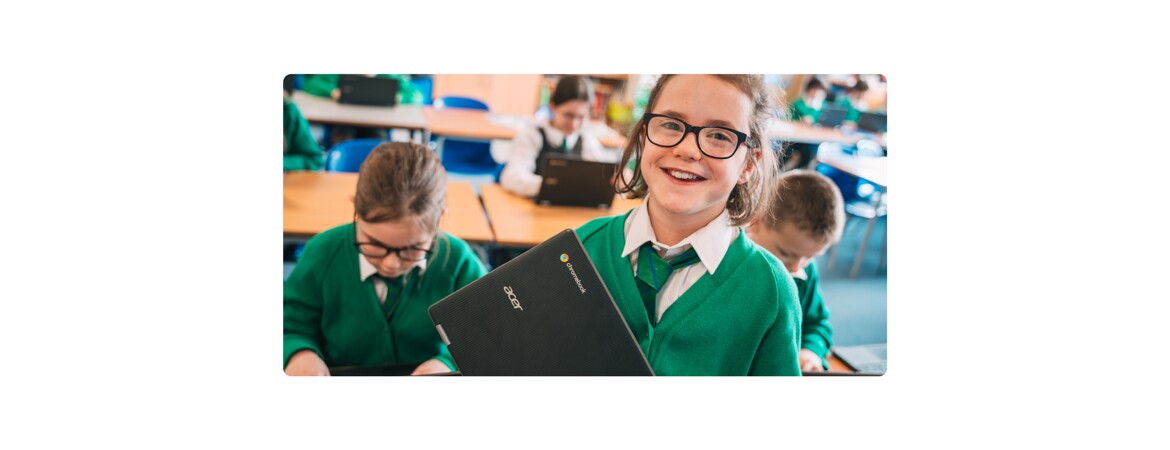Blog: Leaders of Tomorrow: Preparing Children for a Digital Future
Back to News & Blogs
Here at LEO Academy Trust, we aspire to create great learning communities and provide endless opportunities to all.
We believe that preparing children for the future ahead of them is one of the best ways to nurture the leaders of tomorrow and help our communities thrive.
There is no denying that our future is digital. Our focus on having a PedTech mindset and teaching digital skills is designed to help learners face this future with confidence.
Let’s shine some light on the benefits of digital skills for students and see what makes learning them in their early years so important.
The importance of digital skills for students
Digital skills, particularly essential digital skills, are a big part of our daily life.
We use the Internet every day to do our work, communicate with others, shop, and learn. Knowing how to carry out these actions safely and effectively helps us navigate the world we live in.
But for students, learning digital skills is also a key to a successful future.
The biggest benefits of digital skills for students include...
Employability
Digital skills are now essential for succeeding in any career. The sooner young people learn to use new technology and online tools effectively and responsibly, the better their life chances will be.
Critical Thinking and Problem-Solving
Digital literacy is also a fundamental skill for nurturing critical thinking and improving problem-solving. By learning how to effectively search for information and solve problems on the Internet, young people can grow up to be responsible and well-rounded citizens.
Online Safety
Digital literacy can help students understand how to use the Internet safely, avoiding common threats like phishing and malware. Cybersecurity skills are essential not only in the world of work but also in everyday life!
What does digital progression look like at LEO?
Here at LEO, we have a specific Digital Skill Progression Framework embedded into the Computing curriculum and the wider curriculum.
By the end of Key Stage 1, children become familiar with using a range of digital tools that support their learning and kickstart their digital literacy skills.
From Year 1 to Year 6, our children learn how to use the features of their Chromebooks and become increasingly confident in a wide range of skills. In turn, the children’s competence and confidence allow teachers to use more digital features that enhance classroom practice across the curriculum.
Complementing the commitment for all children to develop a specific suite of digital skills, LEO also has Digital Leaders who provide structured support in class and in school.
The support systems put in place at LEO are deliberately aimed at both children and adults, as well as being both strategic and responsive. Digital Leaders have worked together to create teacher guides for new resources, reflecting our character as a mutual learning community.
Even though these leaders have historically been children in Key Stage 2 who are very competent in their technical skills, we have gradually expanded to ensure that every class has at least one child trained with relevant skills and confidence to provide specialist peer support.
Learn more
Here at LEO, digital competence is at the heart of everything we do.
We understand the impact and benefits of digital skills for students of all ages, and work to foster digital literacy as early as Reception stage to better prepare our youngest for the future ahead of them.
To learn more about our approach to digital technology and digital skills, head over to our LEO PedTech Impact Report.

